
Recently, Yang Zongkai, President of WUT, led a delegation to visit Japan and Singapore. The delegation visited the Institute of Scientific and Industrial Research, Osaka University, Kobe University, Institute of Science Tokyo, Japan Science and Technology Agency, Nanyang Technological University, and the Agency for Science, Technology and Research of Singapore. They also met with the representatives of the visiting teachers, students, alumni, and overseas Chinese professors, and paid a visit to the Embassy of the People’s Republic of China in Japan. The delegation held dedicated sessions in Japan and Singapore to present talent policies and conduct discussions. This visit aims to deepen and expand WUT's practical cooperation with universities and research institutions in Japan and Singapore in the fields of education, science, and technology, attract overseas talents, and help shape a new landscape of higher education and technological cooperation in Asia.
At the Institute of Scientific and Industrial Research, Osaka University, Yang Zongkai met with Director Kuroda. Yang Zongkai highlighted WUT's strength in talent cultivation, academic programs, research achievements, and the internationalization of education. He said that Osaka University is a world-class university, and the Institute of Scientific and Industrial Research is committed to interdisciplinary research integrating industry, academia, and innovation, and actively promotes the adaptation of basic research results to industrial needs. The longstanding friendship between the two universities was reaffirmed, with hopes to deepen cooperation in the field of materials and establish a closer partnership based on the joint training program for doctoral students. Mr. Kuroda welcomed Mr. Yang Zongkai and his delegation and reviewed the high-quality collaborative research work carried out by visiting scholars and joint doctoral students in the past years. He emphasized that the Institute attached great importance to the exchanges and cooperation with Wuhan University of Technology and is willing to further exchange and cooperate with WUT in various fields. The two universities reached multiple agreements on the joint training of talents, joint research, scientific and technological achievements transformation, and other cooperation. The members of the WUT delegation had an intensive exchange with the Institute’s researchers.

Yang Zongkai met with Hisashi Tamaki, Vice President and Board Member of Kobe University, and the head of the Office for International Cooperation Promotion. Both sides reviewed the outcomes of cooperation in the fields of talent development and scientific research and agreed to promote cooperation in the fields of international culture, economics, law, and engineering on the basis of the existing cooperation in foreign languages and literature.
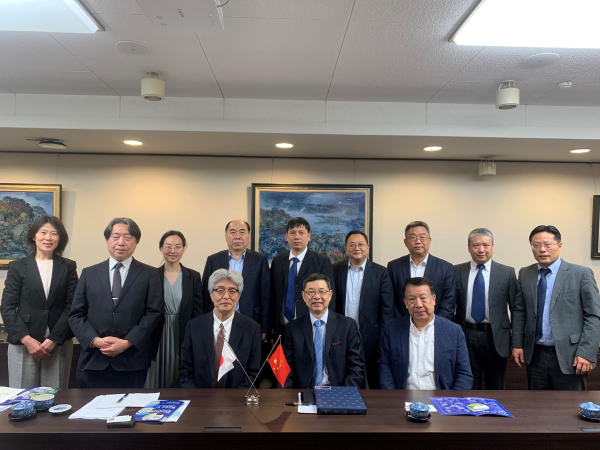
During his visit to the Institute of Science Tokyo, Yang Zongkai met with Professor Jun-ichi Takada, Executive Vice President of the institute. Professor Takada noted that Wuhan University of Technology had made great progress in recent years and that WUT and Science Tokyo had signed an inter-university cooperation agreement since 2022, under which excellent undergraduate and graduate students in WUT would be sent to the Faculty of Engineering, the School of Materials and Chemical Engineering at the Institute of Science Tokyo for three-month laboratory research. It is hoped that the two universities can further consolidate the partnership, enhance friendship, and expand cooperation in materials science, mechanical engineering, and other fields. Yang Zongkai said that the cooperation between the two universities in the field of materials science and engineering shared a solid foundation and had a broad prospect. He looks forward to further joint talent training and cooperative research in interdisciplinary areas such as materials and medicine, or environment and energy, aiming to produce more high-impact outcomes together.
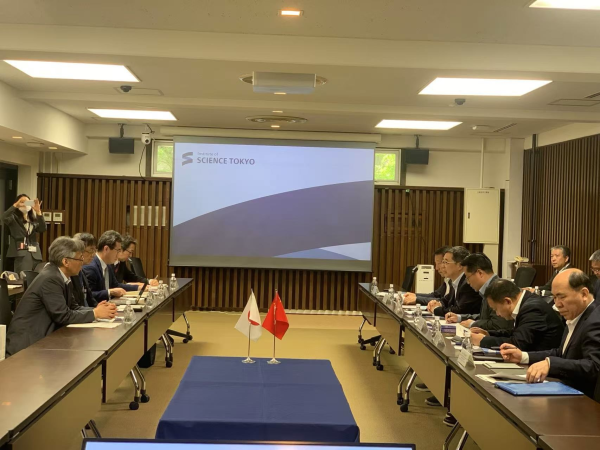
During the visit to the headquarters of the Japan Science and Technology Agency (JST), Yang Zongkai held talks with Okimura Kazuki, Honorary Chairman of JST, and Ito Sotaro, Deputy Director of the Sakura Science Exchange Program Headquarters. Both sides exchanged views on scientific and technological innovation, industry-academia collaboration talent training, and other topics, exploring ways to advance China-Japan cooperation in science and technology education. Chairman Okimura Kazuki welcomed the delegation and emphasized that China and Japan have great potential for cooperation in addressing global scientific and technological challenges and promoting sustainable development. President Yang Zongkai introduced the achievements of Chinese universities in basic research, technology transfer, and international cooperation, and put forward proposals to strengthen bilateral joint scientific research projects and build innovation platforms. Both sides agreed to further promote academic exchanges in cutting-edge fields such as renewable energy, artificial intelligence, and biomedicine, establish a regular mechanism for young researchers to visit each other, and promote the sharing of achievements and industrialization applications. The delegation gained valuable insights into Japan’s experience in the construction of an innovation ecosystem.
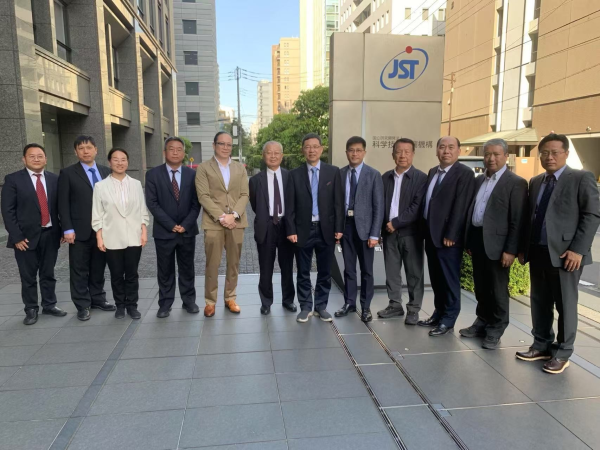
During his visit to Nanyang Technological University in Singapore, Yang Zongkai met with Vice President Mo Huifang and Associate Vice President Yang Yaowen. Both sides expressed their commitment to fully leveraging international innovation resources, high-quality educational assets, talent advantages, and alumni networks in both regions. They aim to jointly cultivate top-tier innovative talent, promote the transformation of high-level research achievements, and deepen collaboration based on the strong existing foundation. One key initiative is to promote the implementation of WUT’s overseas internship program in Singapore. Together, they strive to contribute to the prosperity of education and technology in both countries. During the meeting, a student joint training program agreement exchange ceremony was held. The delegation also held thematic discussions with representatives from the Centre for Research and Development in Learning and the Centre for Teaching, Learning & Pedagogy at Nanyang Technological University, as well as the National Institute of Education at the National University of Singapore.
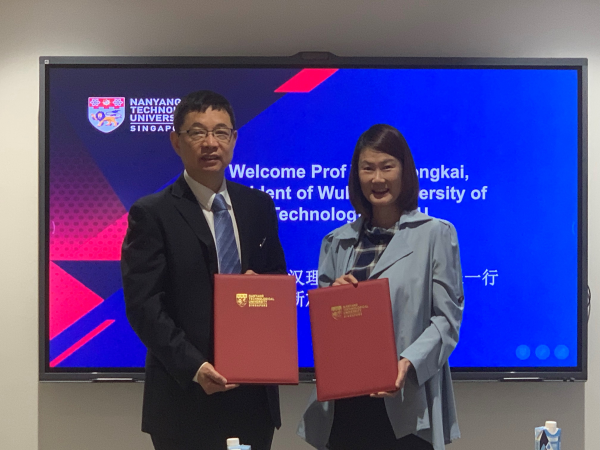
At the Agency for Science, Technology, and Research in Singapore, Yang Zongkai met with Vice President Andy He, Academician Luo Xianjun of the Institute of Materials Research and Engineering, and other senior officials from the Engineering Division. Luo Xianjun introduced A*STAR’s organizational structure, three major strategic directions, and key scholarship programs including SIPGA, ARAP, and SINGA. Both parties agreed to expand new areas of collaboration while maintaining existing projects. They also reached a consensus on incorporating student exchange mechanisms, establishing sustainable cooperation frameworks, co-training postdoctoral researchers, and jointly setting up seed funds for collaborative research.
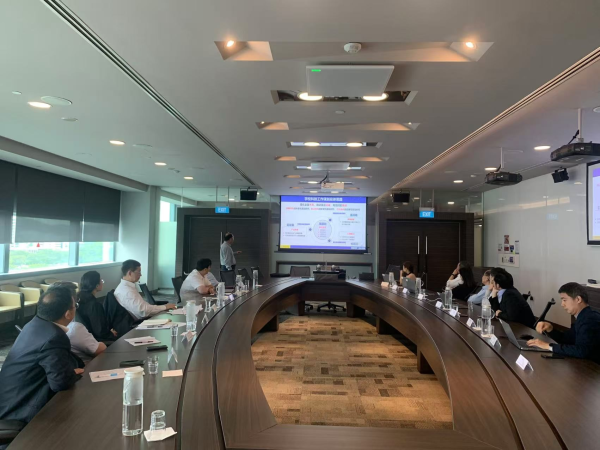
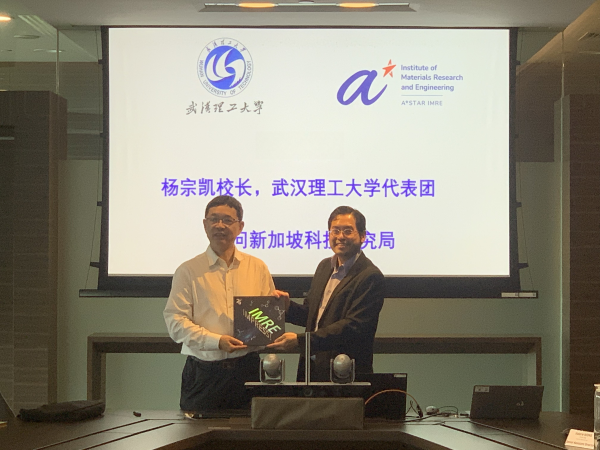
On April 20 and April 22, WUT held overseas talent recruitment policy briefings and networking sessions in Japan and Singapore. Over 100 PhD students, postdoctoral researchers, and young scholars from top universities and research institutions such as the University of Tokyo, Tokyo University of Science, National University of Singapore, and Nanyang Technological University attended. Some doctoral students expressed clear intentions to apply for positions on-site. Yang Zongkai introduced the WUT’s talent recruitment policies, extended warm greetings, and welcomed them to consider joining WUT. He encouraged them to set lofty personal goals, complete their studies as soon as possible, and contribute to the development of the motherland.
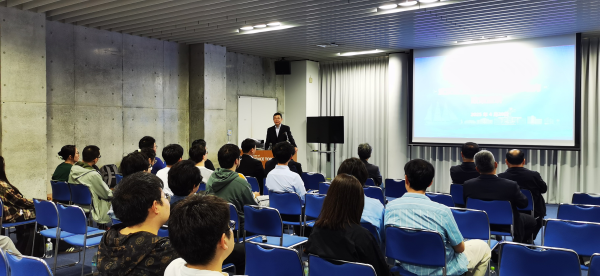
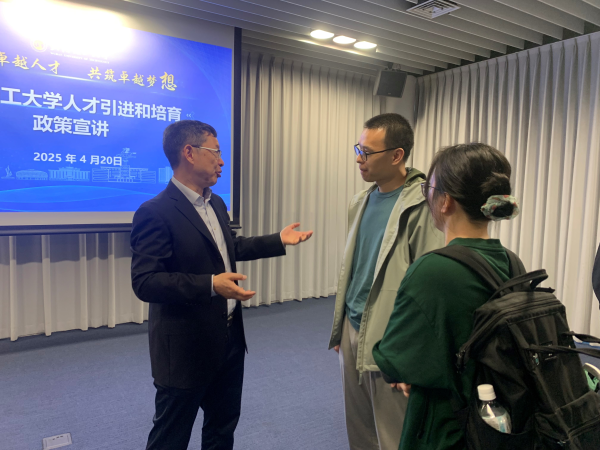
The delegation also visited the Chinese Embassy in Japan, where Yang Zongkai met with Minister Zhao Baogang and Counselor Du Kewei. Zhao Baogang highly praised WUT’s efforts in promoting China-Japan educational cooperation and expressed hope that WUT would continue leveraging its distinctive strengths to enhance collaboration with Japanese institutions, thereby contributing to China-Japan cultural and educational exchanges. Counselor Du Kewei engaged in in-depth discussions on promoting educational cooperation and attracting Chinese students studying in Japan.
During his visits to Japan and Singapore, Yang Zongkai visited doctoral students jointly cultivated by WUT and local institutions. He extended his sincere regards and encouraged them to set personal goals and channel their love for their country and alma mater into passion and motivation for learning and self-improvement.
While in Singapore, Yang Zongkai attended WUT alumni event. He expressed gratitude for the long-standing support of alumni for WUT’s development and encouraged them to further unite and support the career development of fellow alumni, continue supporting WUT in advancing its position, promotes WUT’s spirit to elevate the WUT’s global reputation, and contribute to national development and the great rejuvenation of the Chinese nation.
Yang Zongkai also met with prominent overseas Chinese professors in Osaka, Tokyo, and Singapore, reminiscing about their shared ties with WUT and discussing future development opportunities.
To implement the cooperation consensus reached between Chinese leaders and their counterparts in Japan and Singapore, and in alignment with the Ministry of Education's directives to deepen collaboration in education and science and technology with these countries, WUT organized visits to Japan and Singapore. These initiatives are guided by WUT’s internationalization strategies outlined in WUT’s 14th Five-Year Plan and Medium- and Long-Term Development Plan, as well as the 2025 objectives set by WUT’s Education Opening-Up Leading Group. The visits hold significant importance in advancing comprehensive and multi-level exchanges and collaborations between WUT and relevant universities and research institutions.
Leaders from the International Office, School of Scientific Research and Development, School of Naval Architecture, Ocean and Energy Power Engineering, School of Mechatronics Engineering, and Institute of New Materials accompanied the visit. Academician Zhang Lianmeng and other faculty members currently involved in exchanges in Japan and Singapore also participated in relevant discussions.
Rewritten by: Zhouyou, Gong Mengting
Edited by: Wang Jingjing, Li Tiantian
Source: International Office
|
|